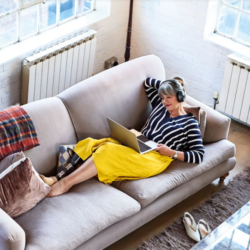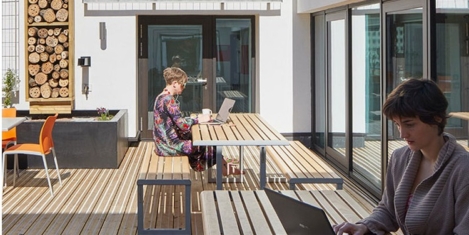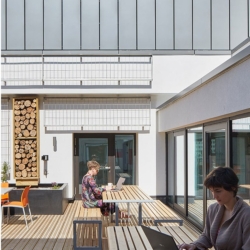To provide the best experiences, we use technologies like cookies to store and/or access device information. Consenting to these technologies will allow us to process data such as browsing behaviour or unique IDs on this site. Not consenting or withdrawing consent, may adversely affect certain features and functions.
The technical storage or access is strictly necessary for the legitimate purpose of enabling the use of a specific service explicitly requested by the subscriber or user, or for the sole purpose of carrying out the transmission of a communication over an electronic communications network.
The technical storage or access is necessary for the legitimate purpose of storing preferences that are not requested by the subscriber or user.
The technical storage or access that is used exclusively for statistical purposes.
The technical storage or access that is used exclusively for anonymous statistical purposes. Without a subpoena, voluntary compliance on the part of your Internet Service Provider, or additional records from a third party, information stored or retrieved for this purpose alone cannot usually be used to identify you.
The technical storage or access is required to create user profiles to send advertising, or to track the user on a website or across several websites for similar marketing purposes.
 A new survey published by Boston Consulting Group (BCG) claims that while 78 percent of those who experienced a change in workplace felt that they had experienced positive impacts, furloughed employees have had a significantly different experience. (more…)
A new survey published by Boston Consulting Group (BCG) claims that while 78 percent of those who experienced a change in workplace felt that they had experienced positive impacts, furloughed employees have had a significantly different experience. (more…)








 Under-35s are in the midst of a professional confidence crisis, with work seen as a place where they feel isolated and afraid to speak out, claims research carried out by culture change business
Under-35s are in the midst of a professional confidence crisis, with work seen as a place where they feel isolated and afraid to speak out, claims research carried out by culture change business 


 More than half of UK workers – 53 percent – plan to make a change to their career in the next 12 months as a direct result of the Coronavirus pandemic according to a new study from
More than half of UK workers – 53 percent – plan to make a change to their career in the next 12 months as a direct result of the Coronavirus pandemic according to a new study from 
 As the UK is in the midst of the traditional ‘back to school’ period, many workplaces are debating over when to return to the office, and how. The sudden move to remote working during lockdown has proven that a new hybrid way of working is in fact possible for numerous organisations, but this has come at the expense of face to face communication and in person collaboration.
As the UK is in the midst of the traditional ‘back to school’ period, many workplaces are debating over when to return to the office, and how. The sudden move to remote working during lockdown has proven that a new hybrid way of working is in fact possible for numerous organisations, but this has come at the expense of face to face communication and in person collaboration. 
 For middle-market and small businesses, the COVID-19 pandemic is highlighting the vital importance of investing in new technology, facilitating remote work, and maintaining the tech-savvy workforce needed to make it all happen, according to a survey conducted by The Harris Poll for
For middle-market and small businesses, the COVID-19 pandemic is highlighting the vital importance of investing in new technology, facilitating remote work, and maintaining the tech-savvy workforce needed to make it all happen, according to a survey conducted by The Harris Poll for 
 New research by the
New research by the 
 A report by HR software and employment law advice service
A report by HR software and employment law advice service 


 The number of self-employed people saying they have “poor” or “very poor” mental health has increased from 6 percent to 26 percent since the beginning of the pandemic (a 300 percent rise), claims new research by
The number of self-employed people saying they have “poor” or “very poor” mental health has increased from 6 percent to 26 percent since the beginning of the pandemic (a 300 percent rise), claims new research by 
 Seniority in the workplace could be directly correlated to how often you listen to music whilst you work, claims a poll of 1,000 UK office workers. The research, which was carried out by London office developer
Seniority in the workplace could be directly correlated to how often you listen to music whilst you work, claims a poll of 1,000 UK office workers. The research, which was carried out by London office developer 








September 15, 2020
Testing times for offices mean new regimes at work
by Helen Farr • Comment, Wellbeing